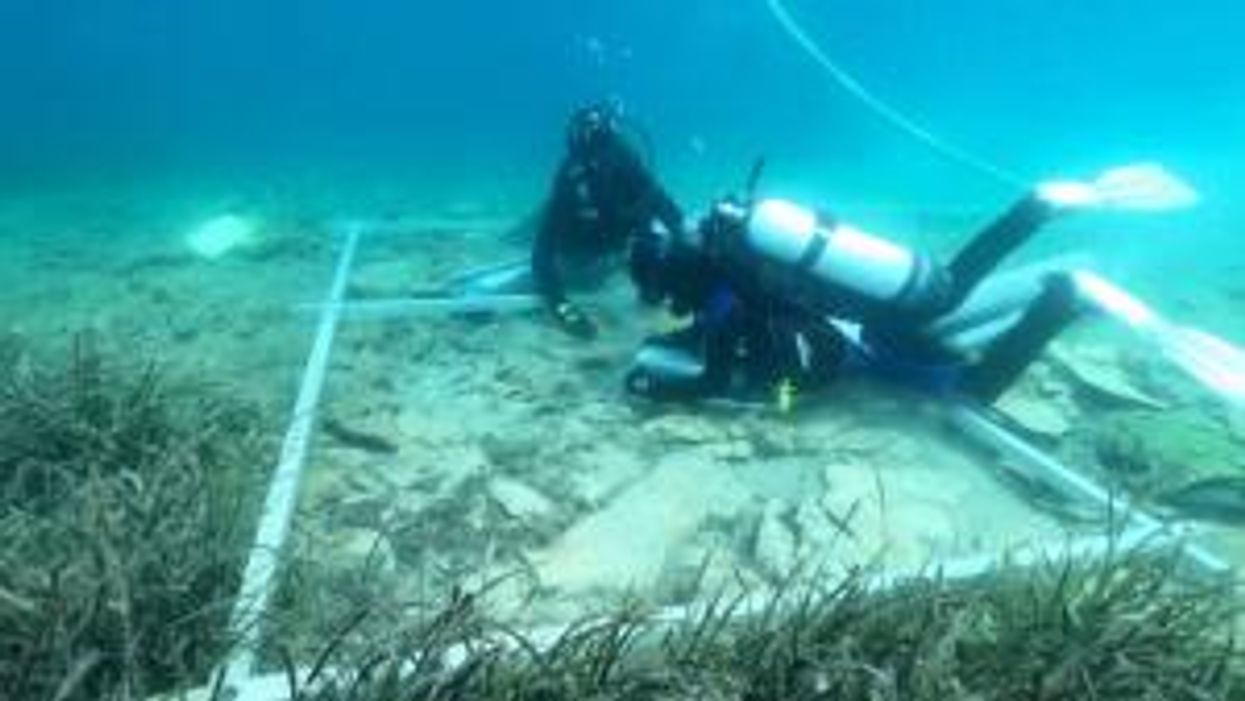Breanna Robinson
Nov 12, 2024
Is this Atlantis? Archaeologists discover 6,000-year-old sunken settlement
Video
A newly discovered mysterious rock structure resembling the fictional "yellow brick road " in The Wizard of Oz is being dubbed "the road to Atlantis".
The underwater path was discovered in 2022 by deep-sea researchers off the coast of Hawaii on the Pacific Ocean floor.
They were searching to investigate underwater structures known as seamounts, which are created by volcanic activity.
In a video uploaded by EVNaurilus on YouTube, the Exploration Vessel Nautilus crew noticed an odd formation while they were studying in an area of the Pacific Ocean called Lili'uokalani Ridge.
It is located in the US' Papahānaumokuakea Marine National Monument.
While they live-streamed their findings, the researchers were shown encountering a formation that, at first glance, appeared to be a man-made brick road that included evident rectangular blocks.
They jokingly wondered if the yellow brick path they found at the bottom of the Pacific Ocean could be the "road to Atlantis," a fictional imperial superpower island mentioned by the Greek philosopher Plato.
Once the crew spotted the formation, a researcher on the radio was heard saying that the pathway was "the road to Atlantis."
Another scientist responded to that query by asking if they meant "the yellow brick road."

Although it may appear as a yellow brick road to the fictionalised city of Atlantis, it is simply an example of ancient active volcanic geology.
EVNautilus' YouTube caption explained:" At the summit of Nootka Seamount, the team spotted a "dried lake bed" formation, now IDed as a fractured flow of hyaloclastite rock (a volcanic rock formed in high-energy eruptions where many rock fragments settle to the seabed)."
They also said that the pattern of fractures in the rock resembling cobblestone is probably a result of repeated heating and cooling due to countless volcanic eruptions over time.
The "never-before-surveyed area" is aiding researchers in their quest to take a deeper look at existence on "and within the rocky slopes of these deep, ancient seamounts."
Sign up to our new free Indy100 weekly newsletter
Have your say in our news democracy. Click the upvote icon at the top of the page to help raise this article through the indy100 rankings.
Top 100
The Conversation (0)














